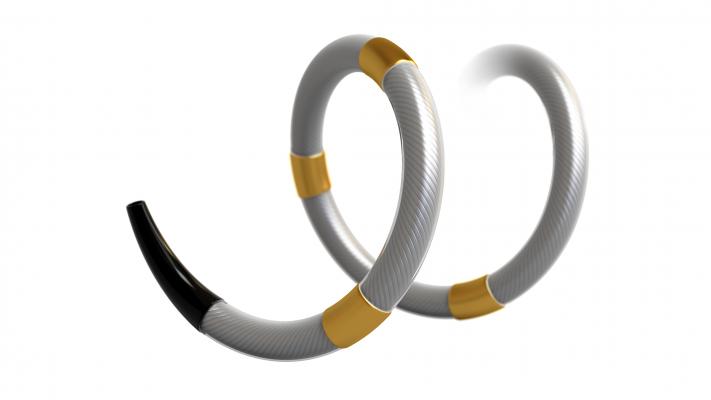
February 17, 2016 — Up to 10 percent of people with high blood pressure have resistant hypertension — high blood pressure that remains elevated despite treatment with at least three blood pressure medications. Now, researchers report in the American Journal of Physiology — Regulatory, Integrative and Comparative Physiology that renal denervation can treat hypertension, including resistant hypertension, when the nerves are completely blocked. This new study, conducted in rats, identified the specific nerves that had to be blocked to achieve the therapy’s blood pressure-lowering effects.
Most clinical studies have shown that renal denervation — a procedure that disrupts the nerves in the kidneys and prevents them from relaying signals — can lower high blood pressure in drug-resistant cases, but a number have shown the procedure to be ineffective.
Two types of nerves transmit signals between the body and the brain: efferent nerves, which relay signals from the brain to the body, and afferent nerves, which send signals from the body to the brain. Knowing which nerve to block for antihypertensive effects will help optimize the therapy and reduce possible side effects, the study’s authors write.
The research team used a technique they developed to block afferent nerves only. They found that disrupting the afferent nerves did not lower high blood pressure in hypertensive rats. However, ablating all the nerves did, leading the researchers to conclude that disrupted efferent nerves caused blood pressure to decrease. The treatment’s effect also did not depend on the severity of the blood pressure increase. Renal denervation lowered blood pressure when performed at either the early or late stages of hypertension. This observation is contrary to clinical trials in humans that supported that the effectiveness of renal denervation depended on blood pressure level, said John Osborn of the University of Minnesota and lead investigator of the study.
The key implication of this study is that “renal denervation does lower arterial pressure when the denervation is complete,” Osborn said. The researchers were able to confirm that the nerves were completely ablated in this study. However, no measurement method to check for complete denervation in patients exists. According to Osborn, this could explain why a recent large-scale clinical trial, Medtronic’s Symplicity HTN-3, failed when the smaller ones before it succeeded. “Although catheter-based renal nerve ablation is now possible, catheter design needs to be improved since present catheters appear only to partially denervate the kidney. Clearly, it is also important to develop a method to assess the completeness of denervation at the time of the procedure.”
Interestingly, a previous study by the research group with a different type of hypertensive rat found that ablating the other nerves, the afferent ones, lowered blood pressure. The opposite findings show how complex hypertension is, Osborne noted.
For more information: www.ajpregu.physiology.org


 January 05, 2026
January 05, 2026 









